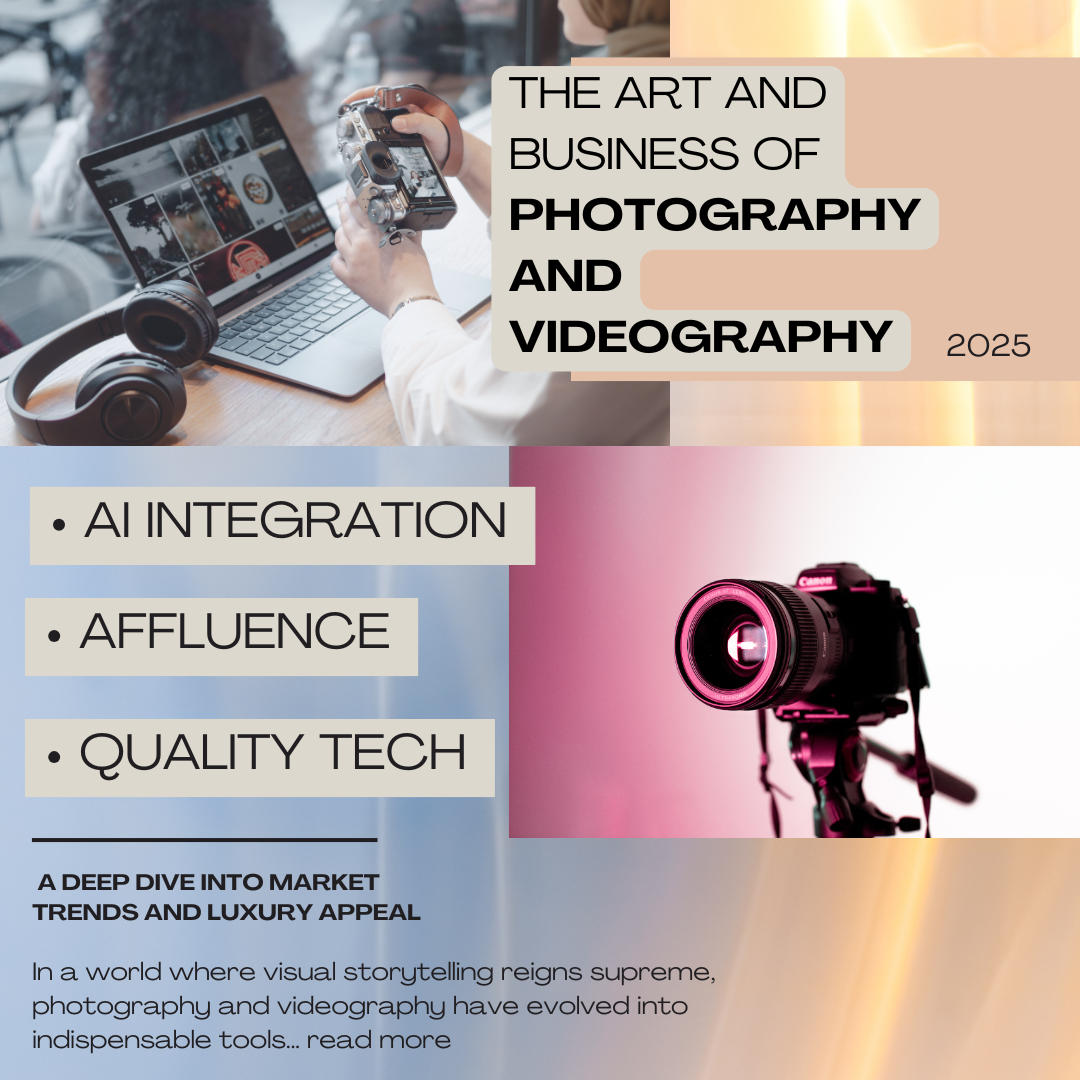
In a world where visual storytelling reigns supreme, photography and videography have evolved into indispensable tools for both personal and professional narratives. From immortalizing precious moments to crafting powerful brand identities, these art forms shape how we see and connect with the world. But beyond their creative allure, they are deeply intertwined with global market trends and the burgeoning luxury market. Let’s explore this dynamic interplay.
Global Market Trends in Photography and Videography
The photography and videography industries are witnessing exponential growth, fueled by technological advancements and increasing content consumption. According to a report by Grand View Research, the global digital photography market size was valued at $44.7 billion in 2022 and is expected to grow at a CAGR of 5.6% from 2023 to 2030. Similarly, the videography sector has seen a surge due to the popularity of platforms like YouTube, TikTok, and Instagram, with demand for high-quality video content at an all-time high.
Some key trends driving the market include:
AI Integration: From automated photo editing to intelligent video stabilization, AI is revolutionizing workflows.
4K and 8K Resolutions: Ultra-high-definition imaging is becoming a standard for professional projects.
Drone Photography: Aerial imaging continues to grow, especially in real estate, travel, and event coverage.
Subscription Models: Cloud-based tools like Adobe Creative Cloud and Capture One are shaping how professionals access and use editing software.
Luxury Meets Visual Arts: A Fusion of Elegance and Creativity
Luxury brands have long recognized the power of high-quality visuals to convey their exclusivity. This intersection of photography, videography, and luxury marketing is evident in categories such as:
Fashion
Luxury fashion houses like Gucci and Louis Vuitton invest heavily in cinematic ad campaigns. Their visuals, often crafted by renowned photographers, evoke a sense of timeless elegance and aspiration.
Watches
Timepieces from brands like Rolex and Patek Philippe are showcased through macro photography that highlights intricate craftsmanship. These visuals are not just advertisements but works of art.
Tech
Luxury tech gadgets such as Apple’s latest iPhones and Tesla’s innovations use sleek videography to highlight design and functionality. For example, check out Apple’s latest innovations or Tesla’s cutting-edge designs.
Pros and Cons of Owning Luxury Goods
Pros
Quality and Craftsmanship: Luxury items often come with superior quality and durability.
Status Symbol: Owning high-end goods can signify success and taste.
Investment Potential: Some luxury goods, like watches or handbags, appreciate over time.
Exclusive Experience: Luxury brands provide exceptional customer service and personalization.
Cons
High Cost: The price tag can be prohibitive for many.
Depreciation: Not all luxury items hold their value.
Maintenance: Keeping luxury goods in pristine condition can be costly.
Risk of Counterfeits: The market for fake luxury items is pervasive.
Real-World Examples of Luxury Products
Fashion Campaigns: Explore Gucci’s latest collections or Louis Vuitton’s iconic designs.
Luxury Watches: Discover the craftsmanship of Rolex or Patek Philippe.
High-End Tech: Check out Apple’s innovations or Tesla’s advancements.
Final Thoughts
Photography and videography are not just artistic endeavors; they are powerful tools for engaging affluent audiences, particularly in the luxury sector. By leveraging global trends and embracing cutting-edge technology, businesses and creators alike can elevate their craft and make a lasting impact.

I was suggested this blog by my cousin. I am not sure whether this post is written by him as no one else know such detailed about my difficulty. You’re amazing! Thanks!